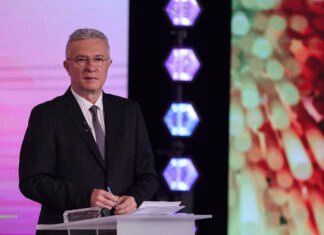The Central Electoral Bureau (BEC) has recently clarified certain regulations regarding electoral campaigning, particularly focusing on political parties that do not have a designated candidate in the upcoming elections. This clarification is crucial for maintaining the integrity of the electoral process and ensuring that all participants abide by the legal framework established for fair campaigning.
According to BEC’s statement, a political party that lacks its own candidate is prohibited from producing any advertising materials that explicitly encourage voters to support a particular candidate. This measure is intended to prevent any potential confusion or manipulation among the electorate, ensuring that voters receive clear and unbiased information about the candidates they can support.
However, the BEC also acknowledges that these parties have the right to express their political opinions and can publicly show support for any candidate they choose. This allowance strikes a balance between protecting the integrity of the electoral process while still enabling parties to voice their preferences. The public expression of support can serve as a platform for parties to align themselves with candidates whose political agendas resonate with their own values, thereby fostering a democratic dialogue among various political entities.
Furthermore, the BEC emphasized that personal opinions shared by politicians, particularly when expressed in a personal capacity rather than on behalf of their party, should not be labeled in any specific way that could mislead the public. This guideline is aimed at preserving the distinction between individual politicians’ perspectives and the official stance of their respective parties. Such clarity is essential in an electoral context, where the interpretation of messages can significantly impact voter perceptions and decisions.
The role of communication in political campaigns cannot be underestimated. It is essential for political parties to communicate effectively and truthfully, especially during election periods when public sentiment is sensitive and can be easily swayed. The regulations set forth by BEC aim to uphold a standard that ensures that all political discourse remains constructive, fostering an environment where voters can make informed choices without the risk of coercive or misleading advertising.
In summary, the BEC has established clear guidelines regarding the activities of political parties without their own candidates in the context of upcoming elections. Such parties are not permitted to create advertisements that could mislead voters into supporting a specific individual; however, they are free to express their political inclinations and endorse candidates that reflect their values. The political landscape must remain transparent and fair, allowing voters to engage with the electoral process armed with accurate information.
Overall, these guidelines from the BEC represent an important step in promoting a healthy electoral environment where the principles of democracy can flourish. By ensuring that all political communication adheres to established norms, the BEC underscores its commitment to a transparent and fair election process that respects the rights of all participants while prioritizing the electorate’s ability to make informed decisions. As the elections approach, it will be crucial for all political entities to navigate these regulations carefully to contribute positively to the democratic process.






